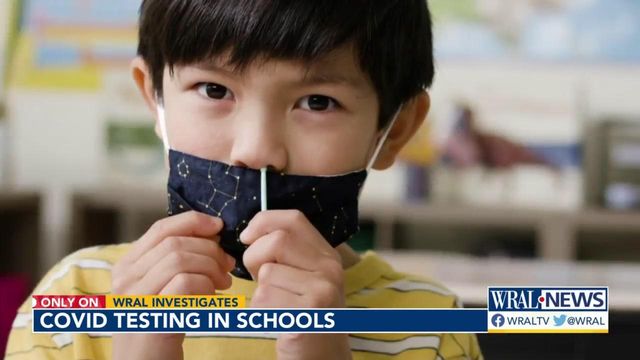WRAL Investigates: School COVID testing challenges in fall
President Joe Biden said today all schools should probably be open in the fall. That's what many school leaders envision. But with most students not eligible for vaccines yet, preventing the spread of COVID will still be tough.
Posted — UpdatedThe federal government gave our state more than $300 million for school COVID testing, but that’s not nearly enough to test every school employee and student several times during the school year.
WRAL Investigates found a screening strategy spreading across the country that just might do the trick. The concept is called pool testing. It saves time and money by screening small groups in schools, not individuals.
"Since September, all we have done is K-12 public education. Why? Because it’s the single biggest problem outside of vaccine manufacturing and distribution that we have as a country," Matt McKnight told us. He’s the chief commercial officer for Boston-based Gingko Bioworks, which formulated a pool-testing program for schools across Massachusetts, Maine, and other states around the country.
He says the goal is simple: "You’re really trying to get a snapshot every week of your school." The strategy focuses on classrooms, according to McKnight. "They’ll test all together. Everyone does a self-swab – just lower nose, none of the deep nasal stuff that you think, just lower nose and the kids actually do it themselves and put it in this tube."
Instead of sending the tubes back to Boston, local labs are tapped to return molecular tests quickly. If a positive result is detected in a classroom pool, schools can do immediate contact tracing and quarantining if needed without shutting down entire school buildings. "Make smaller decisions about classrooms instead of large decisions about schools because you have the data from this easy every week, every kid program," explains McKnight.
So far in Massachusetts, the data show less than one in a hundred classrooms testing positive. Plus, for classrooms already upended by the pandemic, eight minutes of testing a week doesn’t pose a major disruption.
We spoke to Dr. Jeff Marsden, superintendent of the Medfield School system in Massachusetts, to see if the program is working as advertised by McKnight. Marsden acknowledged that contact tracing in middle and high schools where students change classes all day is more challenging, but much more manageable with pool testing. He says so far, there’s been no evidence of any in-school spread.
Related Topics
• Credits
Copyright 2024 by Capitol Broadcasting Company. All rights reserved. This material may not be published, broadcast, rewritten or redistributed.





